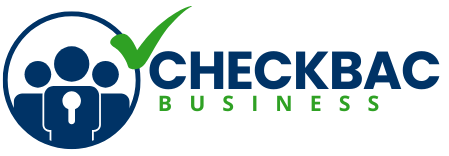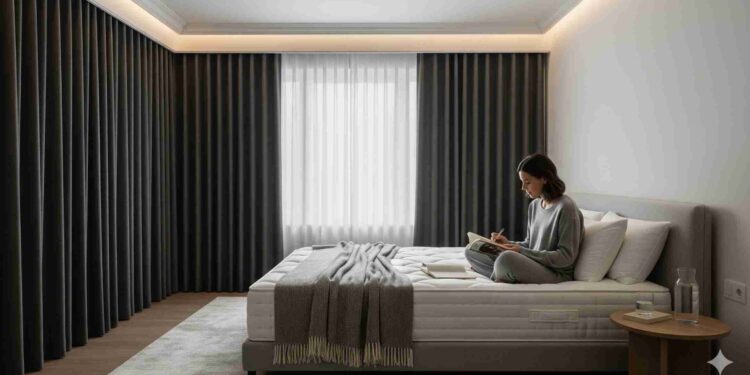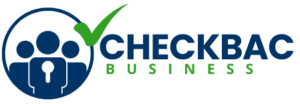Quality sleep isn’t just about feeling refreshed—it’s a strategic advantage that can dramatically impact your professional trajectory. Research from Harvard Business School shows that executives who prioritize sleep outperform their sleep-deprived counterparts by 23% in leadership effectiveness. Yet, 68% of professionals report getting less than the recommended 7-9 hours of sleep nightly. This comprehensive guide reveals seven evidence-based strategies that will transform your sleep quality and, consequently, your career success.
Create a Technology-Free Sleep Sanctuary
Your bedroom environment plays a crucial role in sleep quality, directly affecting your cognitive performance the next day. The blue light emitted by phones, tablets, and laptops suppresses melatonin production by up to 23%, according to Harvard Medical School research. This disruption can delay sleep onset by nearly an hour and reduce REM sleep—the critical phase for memory consolidation and creative problem-solving.
Transform your bedroom into a technology-free zone by removing all electronic devices at least one hour before bedtime. Replace your phone alarm with a traditional alarm clock, and consider blackout curtains to eliminate external light sources. The quality of your mattress also significantly impacts sleep architecture. If you’re experiencing discomfort or frequent wake-ups, visiting a reputable mattress store in American Fork can help you find the right sleep surface that supports proper spinal alignment and reduces pressure points.
Master the Art of Strategic Napping

Strategic napping can boost afternoon productivity by 34% and improve decision-making capabilities, but timing and duration are critical. The optimal nap length is 10-20 minutes, which provides cognitive benefits without entering deep sleep phases that cause grogginess. Research from NASA found that pilots who took 26-minute naps showed 34% improvement in alertness and doubled their performance on memory tasks.
Schedule your nap between 1:00 PM and 3:00 PM when your body naturally experiences a dip in circadian rhythm. Set a firm 20-minute timer, find a quiet, dark space, and resist the urge to extend beyond this window. Even if you don’t fall asleep completely, the rest period will refresh your mind for afternoon challenges.
Optimize Your Pre-Sleep Nutrition
What you consume in the hours before bedtime directly impacts sleep quality and next-day cognitive function. Caffeine has a half-life of 6-8 hours, meaning that the effects of an afternoon coffee at 2:00 PM can still be felt at 10:00 PM. Large meals within three hours of bedtime force your digestive system to work overtime, raising core body temperature and disrupting the natural cooling process necessary for sleep initiation.
Focus on light, easily digestible foods if you must eat close to bedtime. Foods rich in tryptophan, magnesium, and complex carbohydrates can actually promote better sleep. Consider incorporating cherries, almonds, or herbal tea into your evening routine. Avoid alcohol, which may help you fall asleep initially but significantly reduces REM sleep quality—the phase most crucial for memory consolidation and creative thinking.
Establish a Consistent Sleep Schedule
Your circadian rhythm thrives on consistency, and maintaining regular sleep and wake times can improve sleep efficiency by up to 15%. A study published in Sleep Medicine Reviews found that people with irregular sleep schedules showed decreased cognitive performance equivalent to losing 2-3 hours of sleep nightly. This inconsistency particularly affects executive functions like planning, decision-making, and emotional regulation—all critical for professional success.
Choose a bedtime and wake time that allows for 7-9 hours of sleep, then stick to this schedule within 30 minutes, even on weekends. Your body will begin anticipating sleep at the appointed time, making it easier to fall asleep and wake naturally. Use natural light exposure in the morning to reinforce your circadian rhythm and avoid hitting the snooze button, which can cause sleep inertia that lasts for hours.
Implement Progressive Muscle Relaxation
Stress and racing thoughts are the primary culprits behind sleepless nights, with 43% of professionals reporting work-related stress as their main sleep disruptor. Progressive muscle relaxation (PMR) has been shown to reduce sleep onset time by 40% while improving overall sleep quality. This technique works by systematically tensing and releasing muscle groups, which triggers the body’s relaxation response and quiets mental chatter.
Start at your toes and work upward, tensing each muscle group for 5 seconds before releasing completely. Pay attention to the contrast between tension and relaxation. This practice not only improves sleep but also builds awareness of physical stress patterns that may be affecting your professional demeanor and energy levels throughout the day.
Control Your Sleep Environment Temperature

Your body temperature naturally drops 1-2 degrees before sleep, signaling the brain to release sleep hormones. Maintaining a bedroom temperature between 65-68°F (18-20°C) supports this natural cooling process and can improve sleep efficiency by 10-15%. Research from the University of South Australia found that even small temperature variations can fragment sleep and reduce cognitive performance the following day.
Invest in breathable bedding materials like cotton or bamboo, and consider using a programmable thermostat to lower the temperature before your usual bedtime automatically. If individual temperature control isn’t available, try cooling your extremities with lightweight blankets or breathable sleepwear to help trigger the natural sleep response.
Develop a Mindful Wind-Down Routine
A structured pre-sleep routine signals to your brain that it’s time to transition from work mode to rest mode. This psychological shift is crucial for professionals who struggle to disconnect from work-related thoughts. Studies show that people with consistent bedtime routines fall asleep 37% faster than those without established patterns.
Create a 30-60 minute wind-down routine that includes calming activities like reading, gentle stretching, journaling, or meditation. Avoid stimulating activities like intense exercise, work emails, or challenging conversations. Consider incorporating gratitude practices or reflection on positive aspects of your day, which can improve sleep quality while reinforcing a success-oriented mindset.
Quality sleep is the foundation upon which professional excellence is built. These seven strategies work synergistically to create the optimal conditions for restorative rest that fuels peak performance. Start by implementing one or two strategies consistently before adding others, and track your sleep quality alongside your professional productivity to see the direct correlation. Remember that investing in better sleep isn’t just about feeling rested—it’s about unlocking your full potential for career advancement and sustained success.




